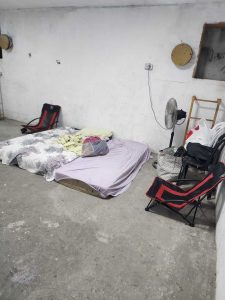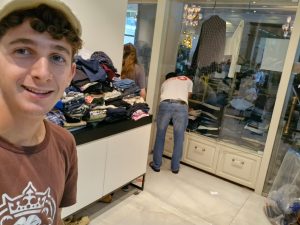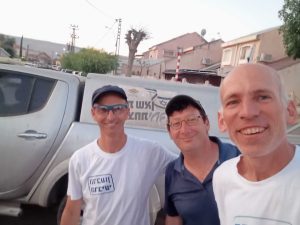Posted on Facebook 11 April 2024
Drawing on an insightful radio interview I recently listened to, I am convinced that this story possesses the potential to offer a profound insight into the emotional landscape of Israeli residents in the north who find themselves displaced from their homes.
He has broken an egg in the past. Breaking an egg is a common mishap, something we’ve all experienced in our kitchen or during grocery runs. It’s a bummer, but we move past it.
Who hasn’t accidentally cracked an egg? We’re all careful when selecting eggs at the supermarket. We reach for the carton we need, whether it’s four, six, a dozen, or two, and before placing it in our basket, we inspect each egg. Some take a quick glance, while others examine each one individually. This routine ensures that by the time we check out, we have a full set of intact eggs. The real challenge comes during transportation and unpacking, or when cooking. Yes, it’s frustrating, especially if eggshells end up in our dishes, but we persevere. We don’t cry over a broken egg.
But for him, breaking an egg carries deeper and personal significance. He earns his livelihood by raising chickens for eggs. For over three decades, he has tended to his feathered companions alongside his fellow farmers on the Northern Border of Israel. For him, the devastation of breaking an egg in the kitchen pales in comparison to the emotional toll of collecting and breaking eggs at the coops. He invests his heart and soul into his work, nurturing the chickens with care. Each day, as he walks through the coop during collection time, he engages them with smiles and song, ensuring their well-being and happiness.
However, since October 7th, war has erupted on the northern border. Hezbollah missiles streak through the skies, and rockets rain down on their community and surroundings. Evacuation orders have emptied the area, leaving it desolate. Yet, he and his friends cannot abandon their duties. With agriculture and their chickens to tend to, they stay behind.
Donning protective armor and armed with military authorization, he visits the coops to tend to his chickens and gather eggs for himself and the rest of Israel, who depend on him. However, the atmosphere is starkly different now. Smiles have vanished, replaced by worry, horror, and despair. The chickens are not their usual selves; they are traumatized and less productive. He handles the egg collection with extra caution, aware of the limited time and the importance of safety for himself and his team. Anxiety grips him as the sounds of war echo in the background, causing him to be on edge. And now, more than ever, he fumbles and drops an egg, feeling a profound sense of heartbreak.
The dilemma persists: should he stay or should he go? He grapples with this question repeatedly. Should he prioritize being in safety with his family or continue caring for his chickens amidst the turmoil? The uncertainty of when and how they’ll return weighs heavily on his mind, along with concerns about the state of their community and chickens upon their homecoming.
Despite the challenges, he remains steadfast. Raised near Tel Hai, the site where Zionist leader Joseph Trumpeldor fell in battle in 1920, he embraces Trumpeldor’s declaration: “Wherever the Jewish plow plows its last furrow, that is where the border will run.” For him, this isn’t just a saying; it’s a call to duty.
So, alongside his farmer friends and amidst the chaos of war, he stands firm, holding the line for himself, his family, his community, and the entire state of Israel.
He walks on eggshells.
*In Israel, the government evacuated 43 communities located up to five kilometers from the Lebanese border. A total of about 61,000 citizens. To them were added several thousand more who decided to evacuate independently.
*The Israeli government has extended the evacuation period until the summer of 2024 (July/August 2024). See Alma: Research and Education Center website
*Hezbollah has killed 6 Israeli civilians and 1 agricultural worker with foreign citizenship so far. A total of 7 civilians were killed.
*Over 70% of Israeli eggs are produced in the north of the country, with 43% of chicken coops located within five kilometers of Israel’s border with Lebanon.



